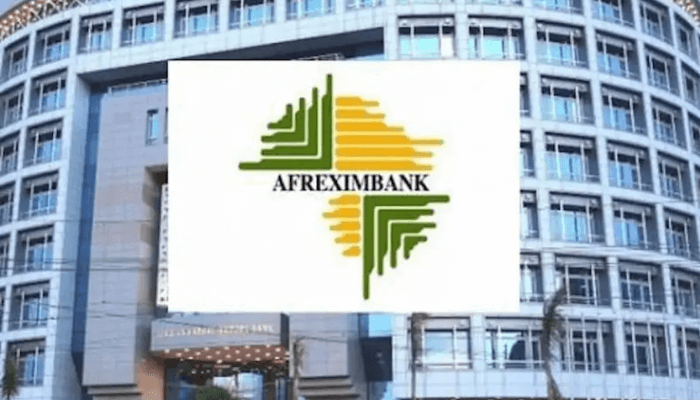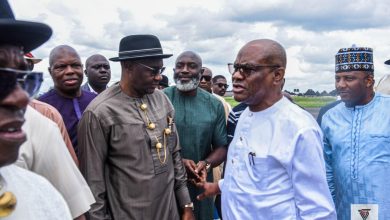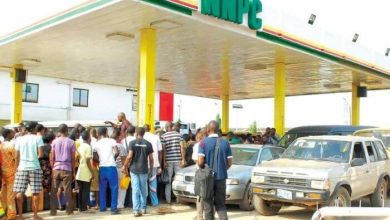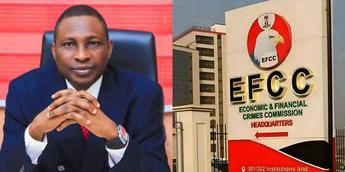Unable To Raise Funds Independently, AFREXIM Shops For $3B To Fulfill Agreement With NNPC

Not being a depositors’ bank, AFREXIM is unable on its own to raise the $3B loan it agreed to provide to the NNPC Ltd in August, Empowered Newswire can now authoritatively reveal.
The money, – the $3B- it is said in official FG circles, besides supporting NNPCL, is also meant to help with foreign exchange liquidity as a strategy of stabilizing the Naira in the FX market.
The NNPCL came up with the idea in what was deemed a brilliant concept just as the Tinubu administration terminated the Dual Foreign Exchange policy two months ago in a bid to sanitise the FX market.
But sources said AFREXIM can only raise $500m by itself and therefore the financial institution-has resorted to seeking out the money as a loan to it from some other global banks in the US, Singapore, India and other parts of the world.
Authoritative sources in New York financial circles confirmed that staff and agents of AFREXIM have been shopping for funds and financial instruments in the US in the last few weeks and discussing raising funds from top notch American Banks like JP Morgan Chase and Citigroup among others.
A member of the Board of one of the banks who pleaded anonymity told Empowered Newswire over the weekend that some of the US banks are raising questions about the strategy of Nigeria using a third party non deposit financial institution and broker. “It raises credibility issues,” he said.
He added that Nigeria has top notchers and executives who are Nigerian citizens in the New York financial markets and across the world who could easily provide a more credible and cheaper means to raise the funds for Nigeria. In New York alone there is Mr. Bayo Ogunlesi and Mr. Jide Zeitlin.
While Ogunlesi, an investment banker is currently chairman and managing partner at the private equity firm Global Infrastructure Partners (GIP), Zeitlin is the immediate past CEO of Tapestry — parent company of international luxury brands such as Coach, Kate Spade and Stuart Weitzman.
Outside New York, there is Kase Lawal, a Texas based oil business guru and the chairman of Unity National Bank of Texas.
Besides seeking the funds from US banks, AFREXIM is also reported to be shopping for the money from international oil traders.
But industry watchers here in the US are also concerned that the option of engaging a broker instead of a deposit bank could raise the level of risk involved in the loan since AFREXIM would have it own charges besides those of the eventual financiers it may manage to enlist.
In August, the Nigerian National Petroleum Corporation Ltd (NNPCL), announced it has secured an emergency $3 billion loan from pan-African financial institution, African Export – Import Bank (Afreximbank), to improve its services across the entire petroleum value chain.
According to the NNPCL, the loan which will be repaid using a limited amount of future crude oil production – will enable the company to settle taxes and royalties in advance while supporting the Nigerian government to stabilize the local currency from devaluation against global major currencies.
“A strengthened Naira as a result of this initiative will lead to a reduction in fuel cost. This means that if the Naira appreciates in value, the cost of fuel will drop and further increases will be halted,” the NNPC said in its press statement
Afreximbank, a development bank, has a mix of shareholders drawn from public and private entities divided into four classes and consist of African governments, central banks, regional and sub-regional institutions, private investors and financial institutions, as well as non-African financial institutions, export credit agencies and private investors.
The bank, according to public records “provides loans, guarantees, letters of credit and advisory services to
sovereigns and private-sector entities. As part of the mandate, it also extends countercyclical loans to assist its member states in tackling negative economic impact of external shocks”
The bank operates in 52 African countries who are among its shareholders. It also has offices in few other parts of the world including the Caribbean Islands.
Unlike other MDBs, however AFREXIM has a profit-driven business model, which focuses on trade
finance and most of its loans have fairly short maturity and self-liquidating nature.




